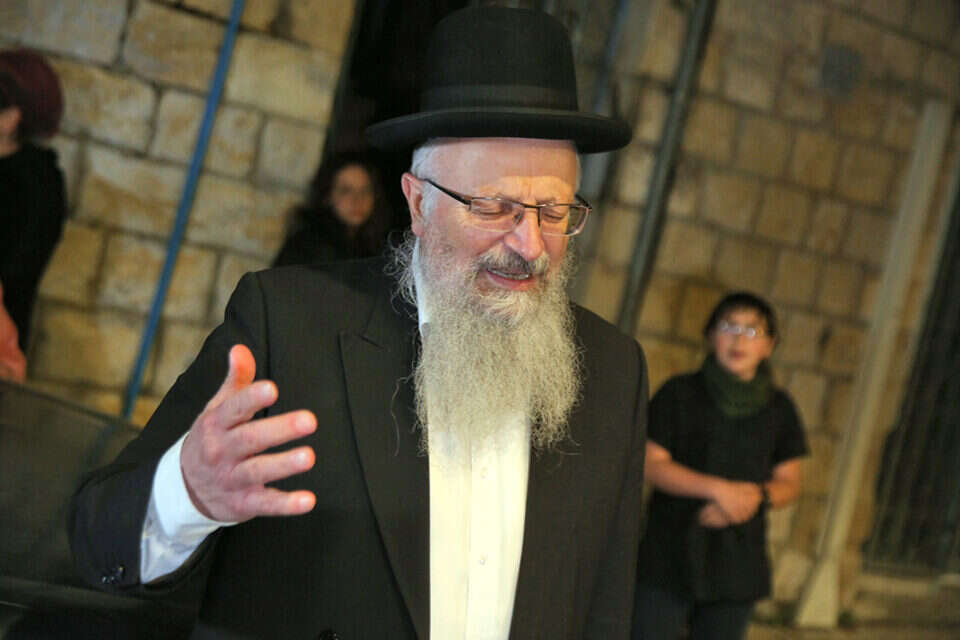Two rabbis, prominent members of the Chief Rabbinate Council, express in closed conversations the fear that Rabbi Shmuel Eliyahu, rabbi of Safed, is ostensibly in a conflict of interest because he serves as a member of the Chief Rabbinate's kosher committee and import committee - while his son, Ariel Eliyahu, runs Badatz.
This is the Birkat Eliyahu Badatz, which was established in 2016 and is owned by Ariel Eliyahu and Rabbi Bnei Mahlouf, who also served until a few months ago as the rabbi of the massacre in Safed. On the subject.
When the second rabbi was asked how it is possible that Rabbi Eliyahu's son controls a kosher body while his father is a member of the kosher committee, he replied that "Shmuel Eliyahu said that it was his brother's kosher at all, he did not tell us that it was his son."
In a conversation with "Israel Today", the rabbi added that "of course it is problematic. You are a member of a committee that determines who gets the authority to be a kosher body and who does not. You are a member of a committee, and you have a son who has a Badatz.
Could it be such a thing? "
It should be noted that many of the rabbis in the Chief Rabbinical Council have various conflicts of interest, and they tend to leave the room when there is a sensitive discussion on the matter.
Rabbi Eliyahu denied the allegations of a conflict of interest, but "Israel Today" learned that the rabbi officially reported a possible conflict of interest only after our request.
The Chief Rabbi, Photo: Oren Ben Hakon
"The rabbi does not participate in the discussions"
The rabbinate defines this as a technical and not a material problem, but past cases show how sensitive the issue is.
Thus, until a few months ago, the massacre in Safed received double supervision - by Rabbi Eliyahu and the Chief Rabbinate and by his son's Badatz, whose partner was the rabbi of the business. "Rabbi Eliyahu had to disqualify himself or demand that there be no Badatz. This is very problematic ", Says a source in the field.
In another case, we will see if the Birkat Eliyahu Badatz can import products, but Rabbi Eliyahu, who is also a member of the rabbinate's import committee, withdrew the request himself apparently because he knew it could be legally problematic - which also proves, on the other hand, how much The border is thin.
In response, Rabbi Eliyahu's office stated that the Safed slaughterhouse has been closed for a long time.
Over the years, the slaughterhouse has taken kosher services from a number of different "Badzim" from time to time, at the request of its customers. "
The Chief Rabbinate's response: "The body in question has not submitted an application for recognition as a kosher body for the purpose of importing from abroad, and in any case is not recognized for this purpose on behalf of the Chief Rabbinate.
As far as we know, the Honorable Rabbi Eliyahu was not a party to the discussions or decisions as a member of the Rabbinical Council, in a way that made him fearful of conflicts of interest in view of his son's connection to the kosher body.
For the sake of a good settlement, the rabbi reported on the affiliation with the rabbinical legal bureau, to examine the formation of a conflict of interest settlement. "
Were we wrong?
Fixed!
If you found an error in the article, we'll be happy for you to share it with us

